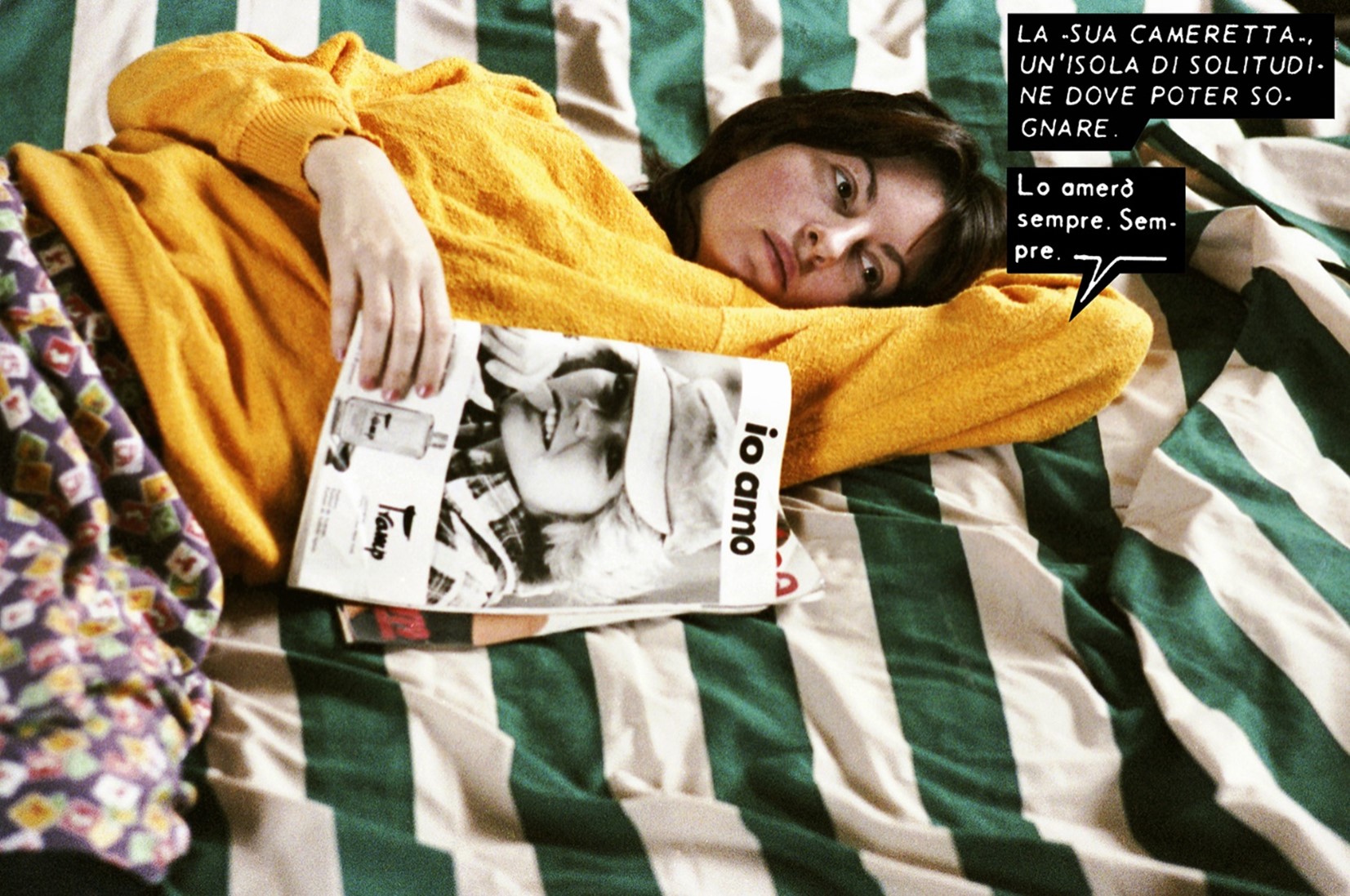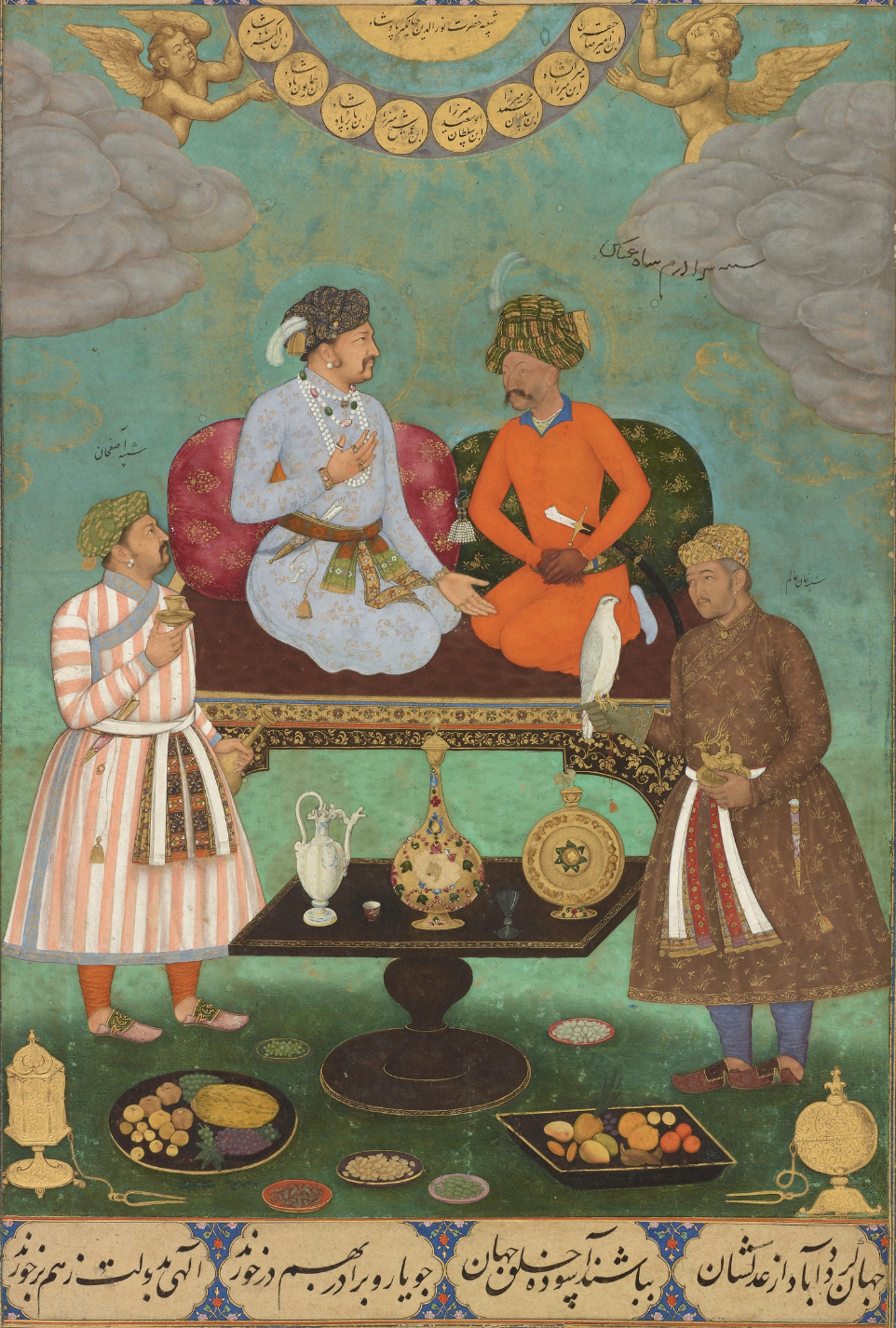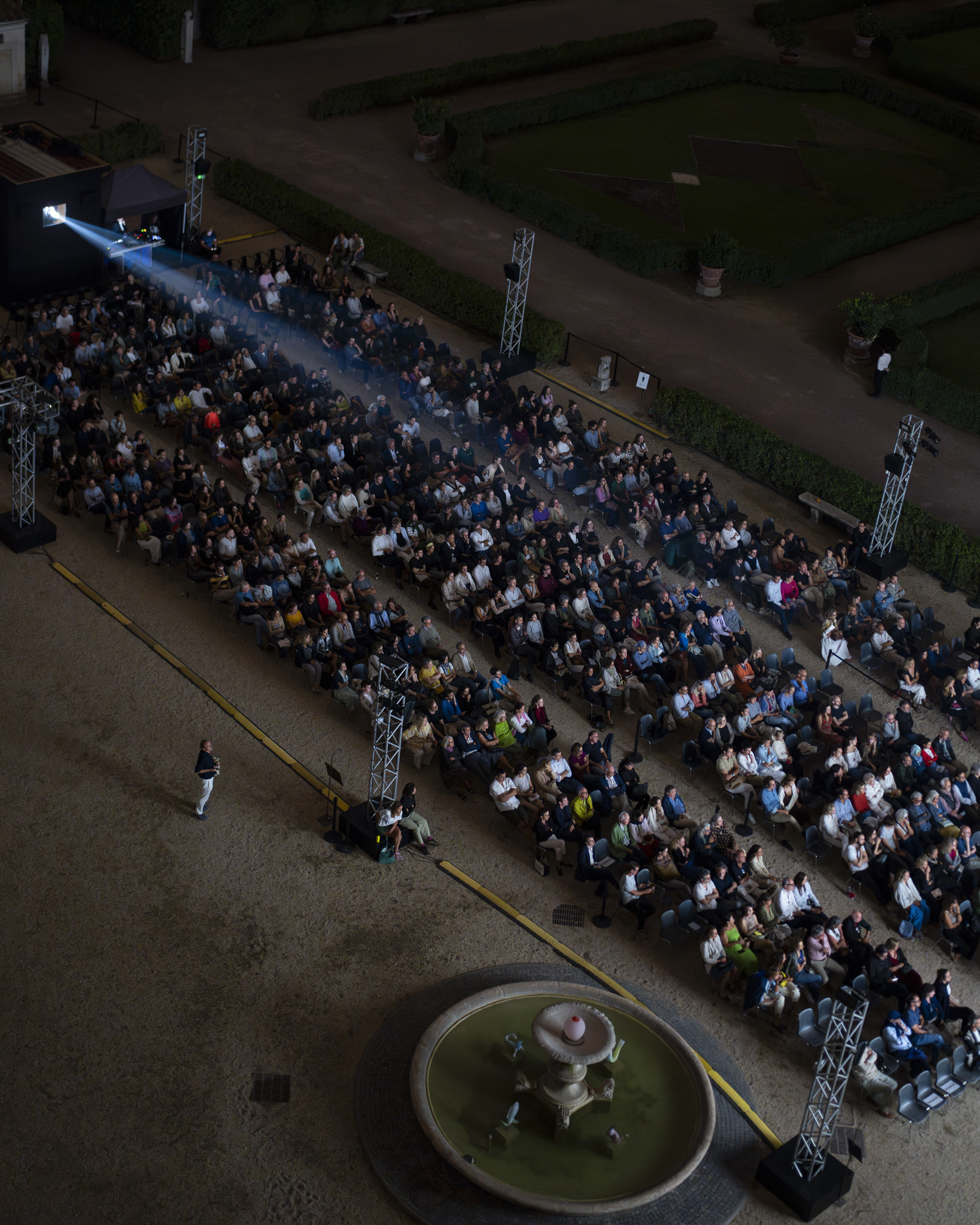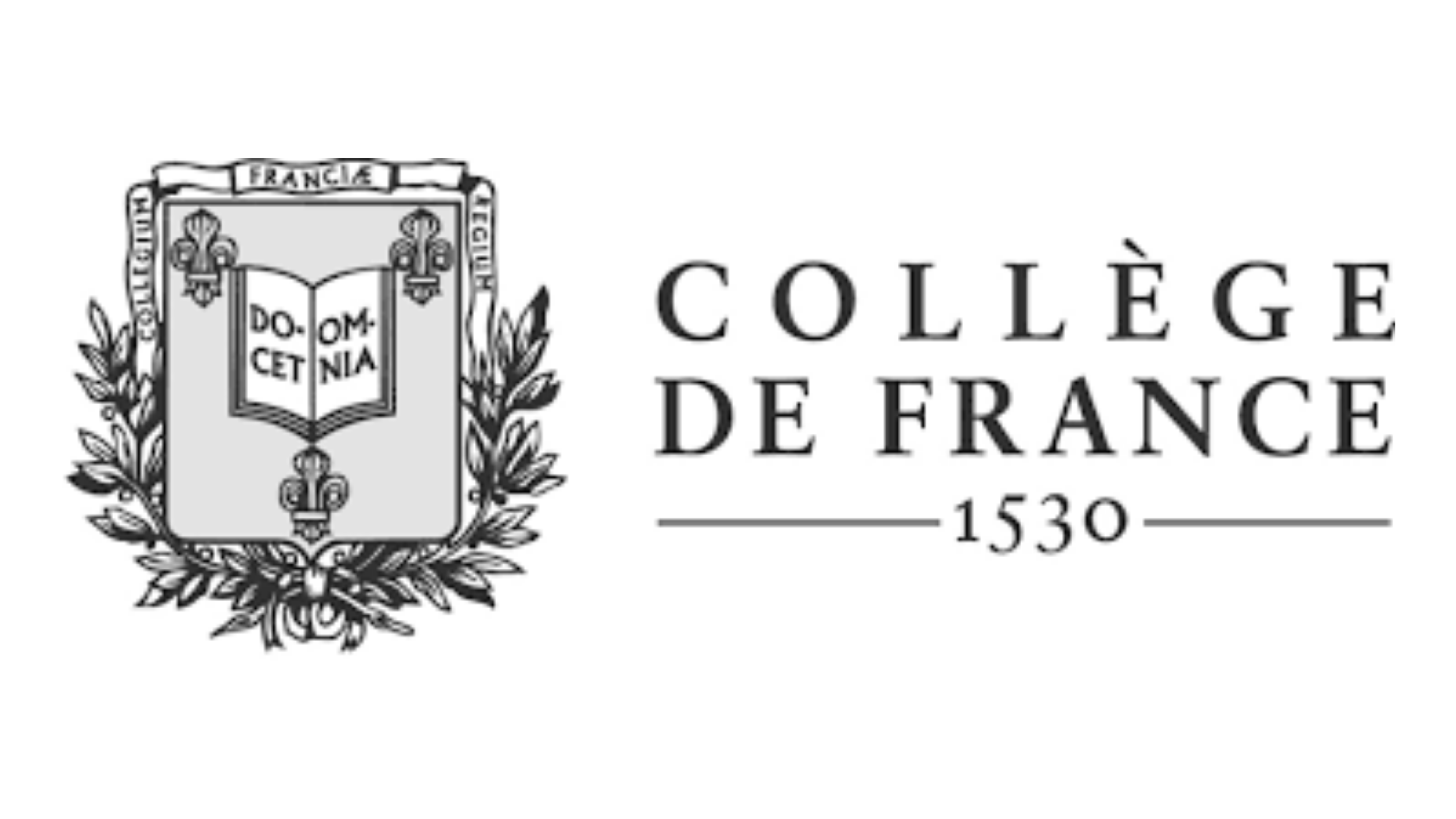Search
Workshop, lecture and show I The world put to the test by exile
30.05.2024

On May 29 and 30, 2024, Villa Medici is organizing a series of international meetings and artistic proposals on the question of exile, under the direction of Anne-Claire Defossez and Didier Fassin, as part of the cooperation between the Académie de France in Rome and the Collège de France.
Thursday, May 30, 9 a.m. to 10 p.m.
Historic areas and gardens of Villa Medici
-
- .9am-4.30pm: Workshop (in English)
→Free → To book, contact [email protected]
- .9am-4.30pm: Workshop (in English)
-
- .5pm-7pm: Lecture (in French)
→ Free
→ Reservation
- .5pm-7pm: Lecture (in French)
-
- .9-10pm : Migrando, show by Carla Bianchi and Francesco Bonomo
→ €10 (€7 concessions)
→ Tickets
- .9-10pm : Migrando, show by Carla Bianchi and Francesco Bonomo
→ Discover the program for the day of May 29, 2024.
THE WORLD TESTED BY EXILE
Over the past decade, as the displacement of populations forced by war, persecution, poverty and climate change has increased worldwide, states have developed increasingly repressive practices to counter it. This is particularly true of European countries, which have deployed human, material and legal coercive measures, and outsourced migration control across the Mediterranean, forcing exiles to take more dangerous routes and exposing them to the brutality of law enforcement agencies, armed groups and local mafias.
” Le monde à l’épreuve de l’exil ” is an international meeting devoted to theanalysis of this political violence of the border, as it manifests itself in the Middle East, Africa, the Atlantic, the Mediterranean, and on the borders or within the European Union itself. Through this analysis, the aim is to understand what this violence reveals about contemporary inequalities in the value of lives and the ongoing upheavals in the moral order of the world, but also about the multiple forms of endurance, resistance and solidarity mobilized in response. The event combines human and social science research based on field surveys conducted on several continents, alternating public lectures, workshops and artistic events.
This international event is supported by the Nomis Foundation.
9AM – 4:30PM: WORKSHOP
Workshop moderated by sociologist and researcher Anne-Claire Defossez and anthropologist and professor Didier Fassin (in English)
→ Free
→ For reservations, contact [email protected]
9am – 1pm: Workshop (Part 1, in English)




Julien Brachet (Institut de recherche pour le développement)
▼ Xenophobia and the Subversion of Mobility in the Sahara
The current evolution of border regimes in the Sahara is the result of external (European) and internal (African) political logics that intersect, hybridize and are embodied in the concomitant transformation of what serves as a border and in the management of the spaces concerned. Old systems of mobility are being disrupted and reconfigured, leading not to the expected drop in migration, but to higher costs, risks, suffering and deaths in the desert.
Bilgin Ayata (Universität Graz)
▼ Elastic Border as Zones of Stress and Strain in the Canaries Islands
The Canary Islands have become an elastic border zone, in parallel with the excessive militarization of the Central and Eastern Mediterranean routes. At present, it is the deadliest route to the European Union. Bilgin Ayata explores the recent increase in boat arrivals from West Africa and local resistance to becoming another island prison of the EU border regime in the wider context of border coloniality, which shapes the configuration of the archipelagos as passageways to and from Europe.
Morgane Dujmovic (CNRS, Pacte Laboratory)
▼The Game of Violence and the Croatian Experience of EU Externalization
Why are Croatia’s borders among the most violent in Europe? Twenty years of restrictive migration policies were imposed on Croatia to join the European Union (2013) and the Schengen area (2023). These geopolitical games contribute to a sordid “game”, the name given to attempts to cross the border that are prevented by violent or even fatal refoulements. Exiles, authorities and local populations bear witness to this geography of inhospitality forged from above.
Barbara Pinelli (Universitá degli Studi di Roma Tre)
▼ Feminist Perspectives on Central Mediterranean Border Control
Barbara Pinelli offers a reflection on the strategic use of “salvation” on the Central Mediterranean route, examining the link between border regimes, humanitarian taxonomies and the iconic construction of the female subject. Through a feminist perspective and by reconstructing the discursive registers constructed on women’s disembarkation, she reveals how the use of the female body as an icon of vulnerability serves to reinforce border regimes and establish taxonomic orders between perfect victims and refugees who don’t deserve to be saved.
2:30 – 4:30 pm: Workshop (Part 2, in English)


Lorenzo Alunni (Universitá degli Studi di Milano-Bicocca)
▼ Clinical Borders
At the border, bodies are subjected to the gaze of doctors as well as law enforcement officers, to biomedical as well as biometric examination, to compassion as well as rejection. But above all, they are the site of the pathological, traumatic and deadly experience of crossing the border. This presentation focuses on the border of the central Mediterranean, examining the ways in which the border can reduce migrants to their bodies.
Francesco Zucconi (Universitá IUAV di Venezia)
▼ Border Mediascapes
Since the 2000s, many documentary films made in Europe have focused on border areas. In some cases, these films have been made by European filmmakers. In other cases, migrants themselves have documented their journeys. A constant aspect, found in films with very different sensibilities, is the interest in media technologies that operate in border areas, enabling strategies of control, forms of assistance and tactics of resistance.
5PM – 7PM: CONFERENCE
Conference moderated by sociologist and researcher Anne-Claire Defossez and anthropologist and sociologist Didier Fassin (in French)
→ Free
→ Reservation


Charles Heller (University of Bern and Border Forensic) with Mahamat Daoud
▼ Counter-investigation into the Nador-Melilla massacre of June 24, 2022
How do you document and analyze a massacre? Can we make visible the dehumanization of racialized subjects without reproducing and normalizing it? Can we account for an event from the dual perspective of its rupture and its structural conditions of possibility? These questions will be addressed in Border Forensics’ investigation, in collaboration with other partners, of the massacre of black migrants at the Nador-Melilla border on June 24, 2022.
Marielle Macé (EHESS, Centre de recherches sur les arts et le langage)
▼ Yusuf’s garden
A few years ago, a garden was created along the banks of the Tiber in Rome, below the former Mattatoio. It was created by a Kurdish refugee, who takes care of it. A lesson in hospitality in reverse, a moving prayer for the whole city… But where does Yusuf live? What’s his story? We shouldn’t confine him to his garden, but make him the man of a place that cures us of our own inhospitality. It’s a whole, invisible trajectory of exile that needs to be measured.
9PM – 10PM: MIGRANDO, PERFORMANCE BY CARLA BIANCHI AND FRANCESCO BONOMO

Migrando, show by Carla Bianchi and Francesco Bonomo (in French)
→ 10€ (7€ reduced rate for cardholders SOLO, DUO, TRIBE)
→ Tickets
What can link the future of a small abandoned village and the fate of a boatload of 50 migrants? The mayor of a village calls on Vittoria Azzurra, director of the Migrando project “Welcome a migrant, reanimate a village”.
Everything will come to a head at this town council meeting, where residents have 1 hour to decide. The debate is fierce between supporters and opponents, as the boat faces the storm.
Juggling the characters, Francesco Bonomo stages the dialogue written by Carla Bianchi between these a priori irreconcilable points of view.
A one-man show that humorously deciphers the preconceived ideas and contradictions surrounding a topical issue: the reception of migrants.
She starred opposite Philippe Torreton in the France 2 TV film La Reine et le cardinal. After two years in Genoa with the Teatro della Tosse company, she decided to pursue her artistic career in France. Author of several screenplays for the cinema and of the play Freddo, words between Glenn Gould and his chair, Carla wrote her first one-woman show in French, Carla ou Dell’amore, before staging Dolce France in 2017 with the help of director Papy. She has also been a guest columnist for several carte blanche shows on France Inter’s Par Jupiter. Migrando is her third show.
In collaboration with Collège de France

Image credits:
Cover image: Border police stop exiles at the Montgenèvre pass between Italy and France © Samuel Gratacap, March 14, 2021
Photo Julien Brachet © Julien Brachet
Photo Bilgin Ayata © Bilgin Ayata
Photo Morgane Dujmovic © Morgane Dujmovic
Photo Barbara Pinelli © Barbara Pinelli
Photo Lorenzo Alunni © Lorenzo Alunni
Photo Francesco Zucconi © Francesco Zucconi
Photo Charles Heller © Charles Heller
Photo Marielle Macé © Marielle Macé
Photo Carla Bianchi © Mohammed Ghannam
Practical Information:
Location:
Date :
On May 29 and 30, 2024, Villa Medici is organizing a series of international encounters and artistic proposals around the question of exile, under the direction of Anne-Claire Defossez and Didier Fassin, as part of the cooperation between the Académie de France in Rome and the Collège de France.
Thursday, May 30, 9am-10pm
Historic areas and gardens of Villa Medici

THE WORLD TESTED BY EXILE
Over the past decade, as the displacement of populations forced by war, persecution, poverty and climate change has increased worldwide, states have developed increasingly repressive practices to counter it. This is particularly true of European countries, which have deployed human, material and legal coercive measures, and outsourced migration control across the Mediterranean, forcing exiles to take more dangerous routes and exposing them to the brutality of law enforcement agencies, armed groups and local mafias. ” Le monde à l’épreuve de l’exil ” is an international meeting dedicated toanalyzing this political violence of the border, as it manifests itself in the Middle East, Africa, the Atlantic, the Mediterranean, and on the borders or within the European Union itself. Through this analysis, the aim is to understand what this violence reveals about contemporary inequalities in the value of lives and the ongoing upheavals in the moral order of the world, but also about the multiple forms of endurance, resistance and solidarity mobilized in response. The event combines research in the human and social sciences, based on field surveys conducted on several continents, with public lectures, workshops and artistic events. This international event is supported by the Nomis Foundation.
9AM – 4:30PM: WORKSHOP
Workshop moderated by sociologist and researcher Anne-Claire Defossez and anthropologist and professor Didier Fassin (in English) → Free
→ To book, contact [email protected]
9am – 1pm: Workshop (Part 1, in English)

Julien Brachet (Institut de recherche pour le développement)
▼Xenophobia and the Subversion of Mobility in the Sahara
The current evolution of border regimes in the Sahara is the result of external (European) and internal (African) political logics that intersect, hybridize and are embodied in the concomitant transformation of what serves as a border and in the management of the spaces concerned. Old systems of mobility are being disrupted and reconfigured, leading not to the expected drop in migration, but to higher costs, risks, suffering and deaths in the desert.





